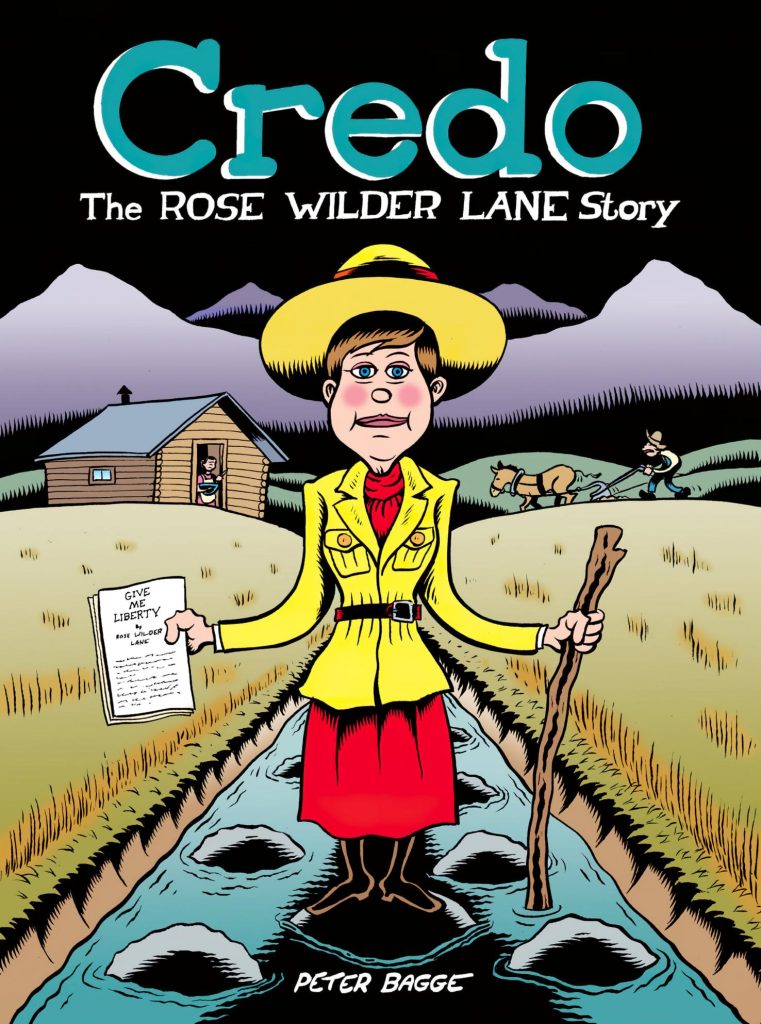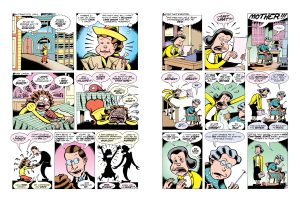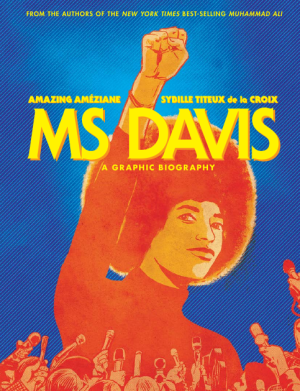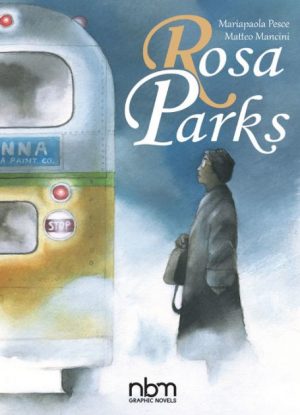Review by Ian Keogh
Rose Wilder Lane isn’t a name widely known to most, but well known to a narrow spectrum, primarily those whose philosophical inclinations tend toward Libertarianism. However, most Americans of a certain generation are aware of The Little House on the Prairie books or TV show, and according to which sources you believe, her contribution to the books published under her mother’s name varies. However, Peter Bagge’s introduction supplies a picture of a fascinating woman who may have been difficult and contrary, but is to be admired for forging her own path while coping with what would now be considered Bipolar Disorder. He also points out Libertarianism is a divisive philosophy, and as she did much to popularise the ideas, biographers tend to have an axe to grind.
Bagge’s approach is the same taken with The Margaret Sanger Story by providing scenes with dialogue and occasionally conflating events and people while retaining honest intent. Explanations and considerations are supplied in extensive notes at the back. It’s a technique that works better than expected, enabling Bagge to include comically staged moments based on her contradictions suited to his artistic style, yet delivering serious intent. Sanger’s single-mindedness is established from the start, unconcerned about deserting her husband, and how little she cared for limitations placed on women in the early 20th century.
Even divorcing Wilder from her personality hers is a fascinating life. In fact, illness apart, one to be envied today, and such is the adventure it allows Bagge to make leaps from her accompanying police on a raid to accompanying guides searching for school sites in the Albanian mountains. Throughout he depicts Wilder as demanding, although with good intentions at heart, impulsive, independent and irascible, but always principled and often generous. Her view of Libertarianism was maximum freedom accompanied with responsibilities, but it’s not explored in depth here.
Has Bagge ever wondered what Wilder would make of his biography? Pleasingly, there’s no real way of knowing as her views on so few matters could be predicted. That alone makes for an entertaining experience, but Bagge’s meticulous research concerning someone so polarising to aficionados should delight anyone coming to Credo without preconceptions.





